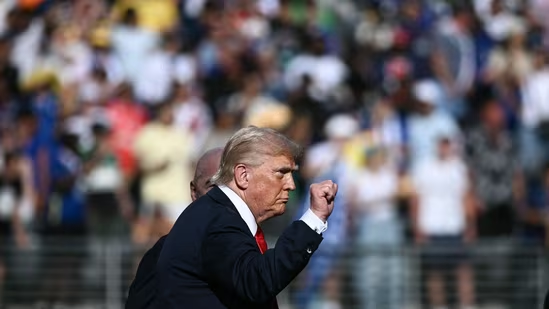The Trump administration’s attempt to postpone the reinstatement of Rebecca Slaughter, a former Biden-appointed Federal Trade Commissioner, was sharply rejected by a federal judge in Washington, D.C., who deemed the government’s justifications appallingly weak and based on attempts to carry on with illegal activity.
The Justice Department’s urgent plea to have her earlier decision declaring Slaughter’s termination illegal overturned was denied by U.S. District Judge Loren Ali Khan, who was appointed by President Joe Biden. AliKhan reiterated that Slaughter is still a legitimate FTC Commissioner in a scathing seven-page ruling this week, using established Supreme Court precedent to back up her ruling.
Ali Khan rejected the government’s argument that a stay was required to prevent possible injury, writing, “The court refuses to allow Defendants to continue breaking the law while this litigation proceeds.”
Citing 90-Year-Old Precedent
Humphrey’s Executor v. United States, a 1935 Supreme Court ruling that restricts a president’s power to dismiss commissioners from independent organizations like the FTC without cause, is at the center of the controversy. Judge Ali Khan underlined that the facts of Slaughter’s case are nearly comparable to those of that seminal decision, which determined that removal must be justified by incompetence, duty negligence, or misconduct.
Although the Trump administration has argued that protections for for-cause removal are unconstitutional, AliKhan clarified that lower courts cannot ignore Supreme Court rulings until they are specifically reversed.
“A lower court cannot unilaterally assume that established law has been implicitly overruled, even when it believes that existing precedent is in conflict with some other line of decisions,” she wrote. This court cannot and will not assume that a decision that has been in effect for ninety years is no longer sound law until the current Supreme Court makes clear what will happen to Humphrey’s Executor.
Rebuke of Supreme Court s Shadow Docket
The DOJ referenced a series of recent brief, unsigned Supreme Court shadow docket orders that gave President Trump the power to fire other independent agency officials, such as those at the OSC, NLRB, and MSPB. However, AliKhan rejected the significance of those instructions, pointing out that they lacked a merits determination and a complete briefing.
She pointed out that the Court specifically did not determine whether the NLRB or MSPB are covered by a recognized presidential-removal exception. This court won’t allow a preliminary ruling to override almost a century’s worth of precedent.
D.C. Circuit Already Stepped In
The judge criticized the speed at which the Trump administration circumvented her court, even though the D.C. Circuit Court ofAppeals has already granted a temporary administrative stay on Ali Khan’s reinstatement order.
AliKhan drew attention to the fact that the DOJ filed for emergency relief at the appellate level only a day after she released a briefing schedule, without notifying the lower court or waiting for the lower court’s proceedings to conclude.
She stated that although the Circuit’s stay is effective on its own, the defendants refused to wait for the standard stay procedure, and she felt compelled to rule on the present request.
A Mockery of the FTC
Judge Ali Khan openly refuted the administration’s argument that her order violated the president’s constitutional authority in what was arguably the most humiliating part of her decision.
She stated, “They claim that the court’s order prevents them from unlawfully destroying the independence of an agency that Congress purposefully protected from executive overreach.” It would be a disgrace to the FTC and the separation of powers to consider such complaint.
She underlined that the public has a critical interest in governmental entities adhering to the federal statutes that regulate their existence and functioning, citing earlier precedent.
Due to ongoing litigation, Slaughter’s status is currently unclear. Judge Ali Khan, however, stated unequivocally that her court will not allow the executive branch to flout the law in the name of constitutional interpretation.












